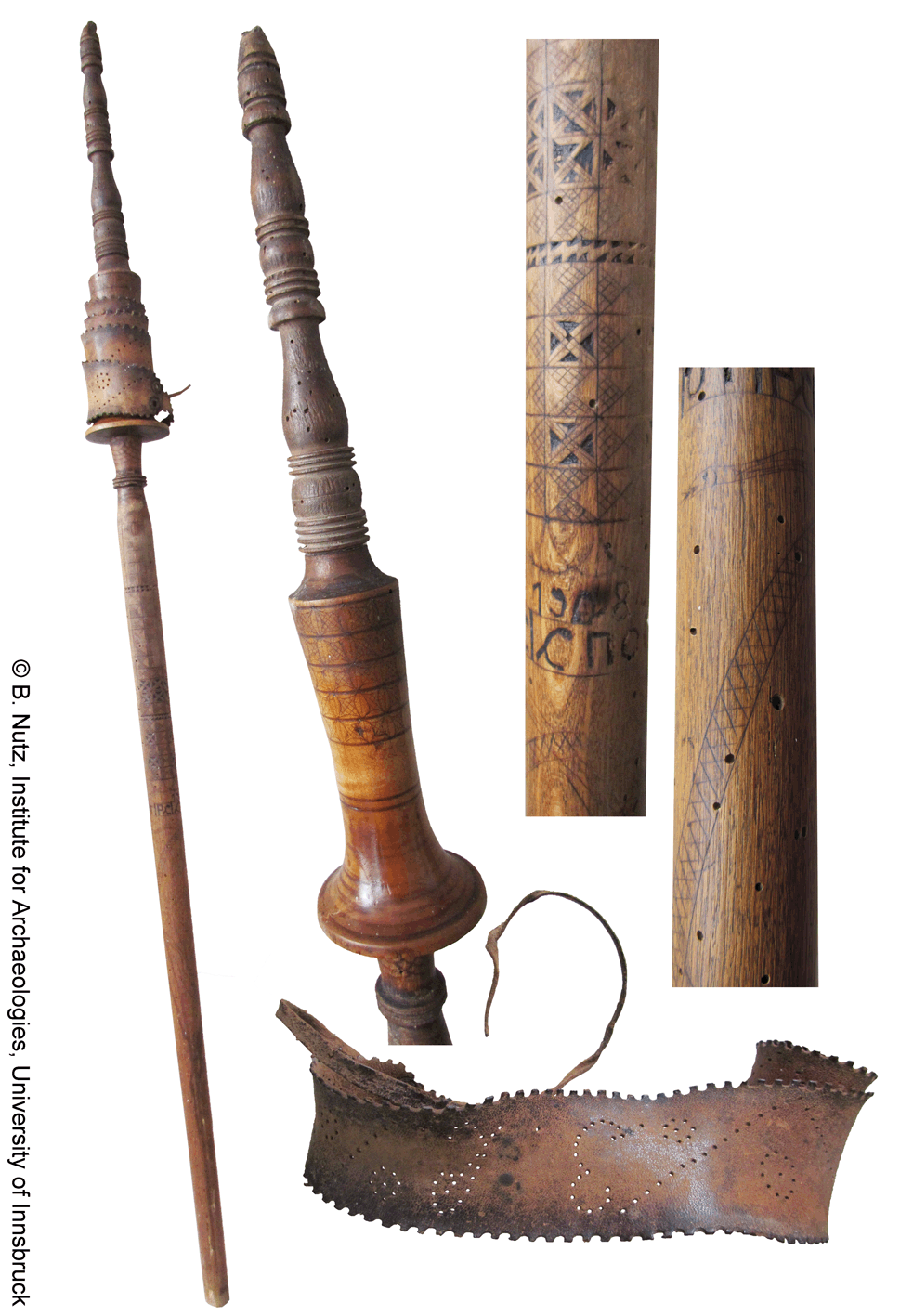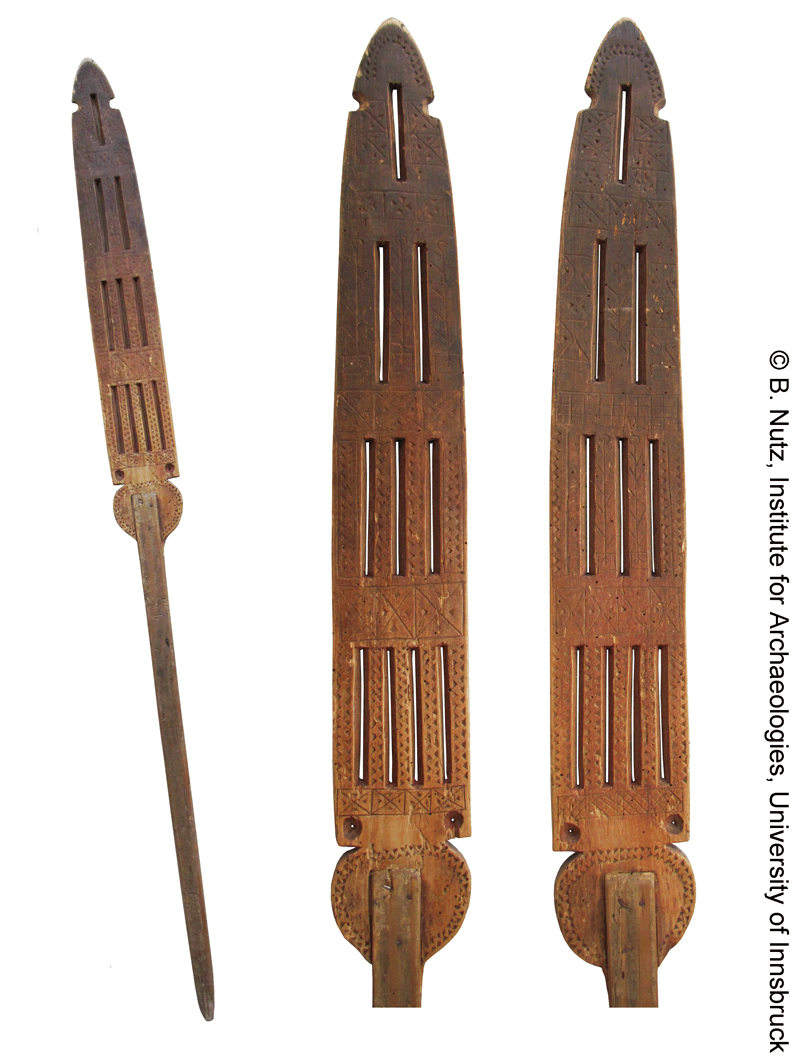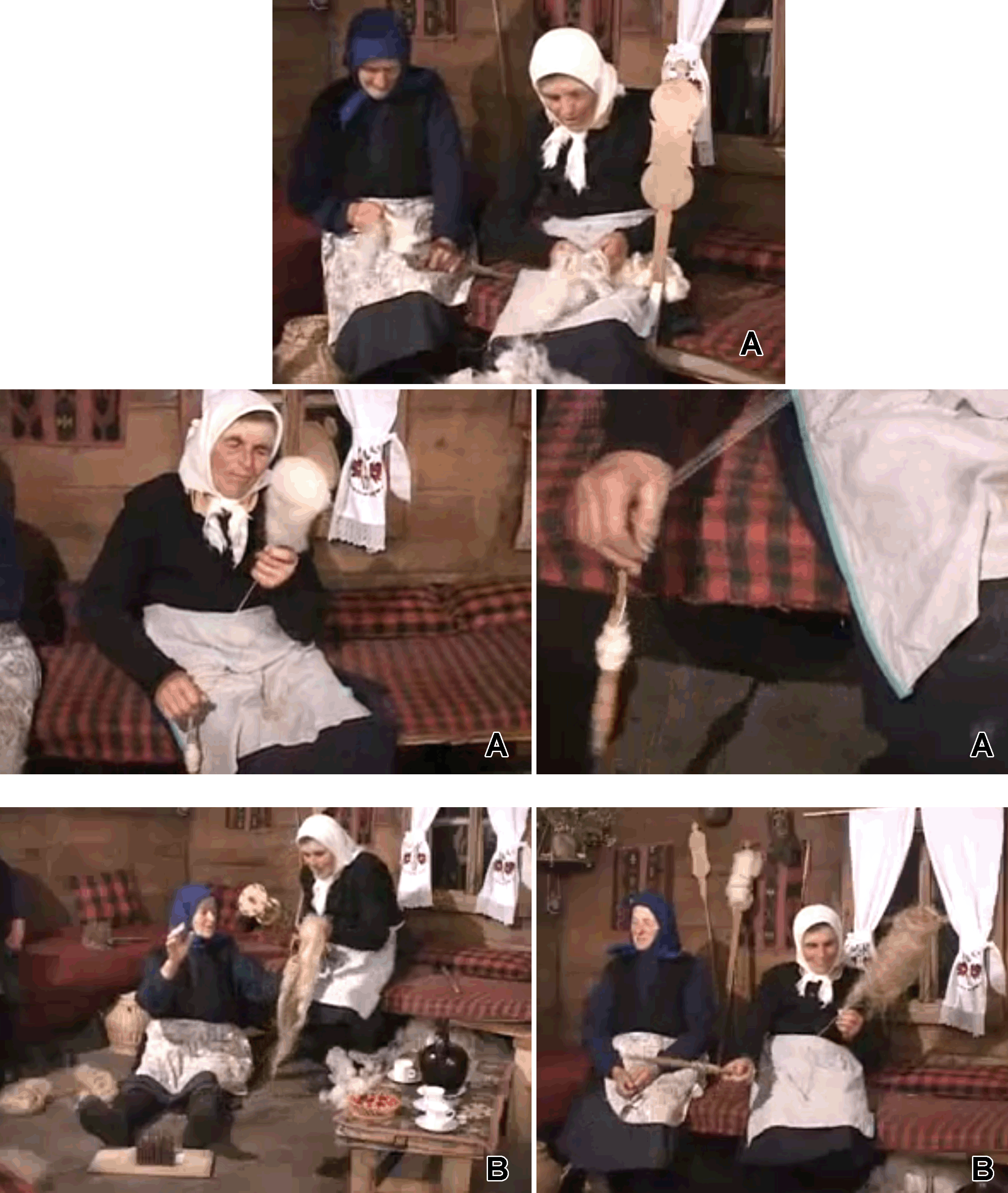Projects and Science
Serbia
Europe
ABT


Antique Balkan distaff from the Pirot region in southeastern Serbia. The carving is made by hand in shepherd's style. Length: 44.88"; Width: 3.15".


Serbian women preparing and spinning wool (A) and flax (B). Different types of spindles and distaffs are used for wool and flax. Images from a YouTube-video: Život na planini (= Life on the mountain);

Liebig Cards are trading cards (or collectible cards), attached to the product packaging of Liebig's meat extract. The meat extract was named after the German chemist Justus von Liebig (1803-1873). 1903
Text overleaf:
Chez les Serbes, qui tiennent avec opiniâtreté a leurs anciennes mœurs et coutumes, toute femme a pour devoir de filer et de tisser elle-même, son linge. L´aîné de la famille (Starjeschina) qui prend soin de toutes les affaires concernant celle-ci, y veille strictement. C'est lui aussi qui représente la communauté vis-à-vis des autorités politiques, arrange 1es différends et dirige le travail auquel la famille entière prend part. Le ménage en commun est successivement tenu par l'une des femmes mariées et tout membre féminin non occupé à la campagne est tenu de filer et de tisser.
Rough translation:
AUTHENTIC LIEBIG MEAT EXTRACT. Among the Serbs, who stick tenaciously to their ancient manners and customs, it is every woman's duty to spin and weave her own clothes. The eldest son (Starjeschina) takes care of all matters her matters and regulates the day. He also represents the family in the community, with the political authorities, arranges disputes and directs the work in which the whole family participates. The household share is held by a succession of married women and all unoccupied female members of the community are required to spin and weave.